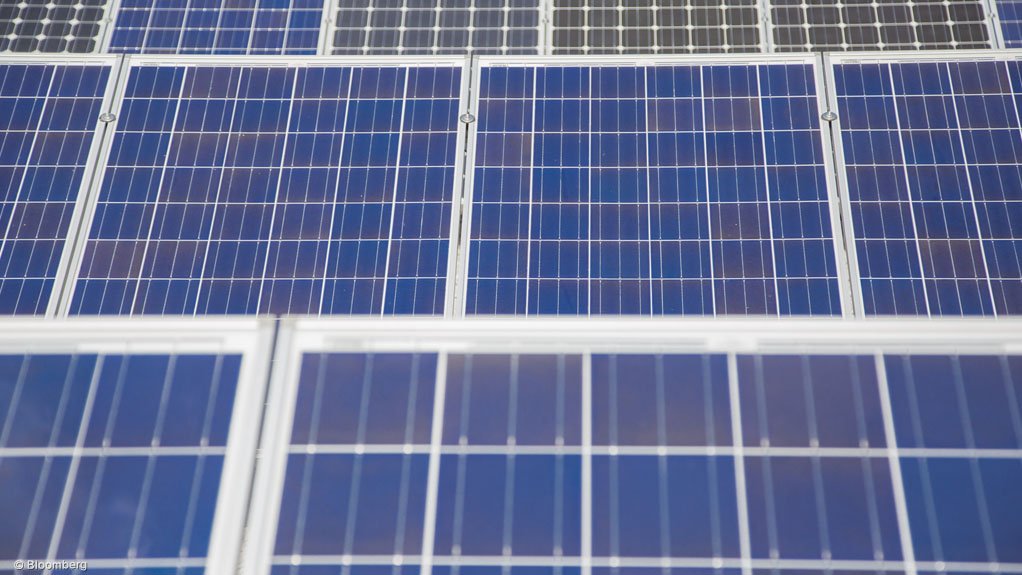As businesses move to become more self-reliant and decrease their exposure to electricity price volatility, government is also moving ahead with policy support for energy efficiency initia- tives in homes, business and industry, says Pan-African law firm Bowmans public law and regulatory head and partner Claire Tucker.
She explains that industry can leverage a range of initiatives as opportunities to create and produce renewable-energy technology and infrastructure, as well as use these initiatives to invest in South African manufacturing capacity.
“Energy efficiency is an exciting space in South Africa and the promise of action from government to fast-track regulation could inject new energy into the sector,” Tucker tells Engineering News.
She believes that government’s policy commitment to energy efficiency was clear from the May 2017 Energy Budget Speech of Energy Minister Mmamoloko Kubayi.
“One of the most important promises the Minister made in relation to energy efficiency was to publish the embedded generation regulations for rooftop solar technology installations and other distributed generation technologies in 2017,” she says.
The Minister noted in her speech that numerous municipalities were approving the installation of rooftop photovoltaic (PV) systems that generated power for their distribution systems. To provide for orderly development, the Department of Energy (DoE) will promulgate the embedded generation licensing framework. While this will address the proliferation of rooftop solar technology installations, the regulations will also cover other distributed generation technologies with a proposed cap of 10 MW for each site.
Tucker suggests that the regulations should include a framework in terms of which excess energy generation can be sold to municipalities, as well as safety standards on how the interconnections between the generation points and distribution networks can function effectively.
She points out that, while the installation of rooftop solar panels for use by the installer is currently allowed, the sale of the electricity generated to a neighbour or a municipality is subject to regulatory hurdles.
“Regulatory uncertainty caused by the delay in finalising the regulations and policy governing small embedded generation projects has made it difficult to obtain financing or to roll these projects out on a large scale.”
Tucker further highlights a range of initiatives in the energy sector, which include an income tax incentive for those installing renewable-energy generation. This includes a 100% allowance in the first year for embedded solar PV renewable energy for self-consumption with generation capacity of up to 1MW.
“In general, the Income Tax Act provides for renewable assets to be written off over an accelerated three-year period. The National Treasury also put forward a 100% allowance to increase the uptake specifically of solar PVs for self-consumption to ease the pressure on the national electricity grid,” Tucker explains.
Examples of assets for which the embedded generation allowance can be claimed are likely to include PV panels, combiner boxes, inverters and batteries.
Another energy efficiency initiative also covered in the same budget speech was the DoE’s solar water heater procurement and installation programme. An additional R441-million has been earmarked for this programme, which envisages the procurement, supply, installation and maintenance of up to 1.75-million solar water heater systems in residential dwellings throughout South Africa.
A supply programme was initiated in December 2015 and an installation programme is expected to be initiated in pilot areas in 2017, Tucker says, adding that the programme is intended to develop local solar water-heating manufacturing capability.
“Knowledge of these incentives should encourage local manufacturers to develop products to service the increase in demand which the incentives facilitate,” she enthuses.
The incentives form part of growing and encouraging industrial developments to move to a low-carbon, green economy.
The energy efficiency policies support South Africa’s international climate change commitment, as well as contribute to an overall goal of creating increased power sustainability, Tucker concludes.
Edited by: Martin Zhuwakinyu
Creamer Media Senior Deputy Editor
EMAIL THIS ARTICLE SAVE THIS ARTICLE
ARTICLE ENQUIRY
To subscribe email subscriptions@creamermedia.co.za or click here
To advertise email advertising@creamermedia.co.za or click here













